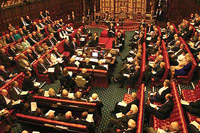The state administration effectiveness issue has always been focused by European societies. It is also one of the main priorities of the EU in the relations with the cooperating states.
Effective management is a priority both in the European Neighborhood Policy and Eastern Partnership Project. The European community provides different types of support for this purpose such as financial, technical support, expertise, ect.
Since independence many reforms have been implemented in Armenia for the purpose of shifting the state administration effectiveness, which were carried out more actively especially after the integration with European institutions. However, people in Armenia are not sure that these projects are effective. The problem is not the fact that most of the reforms in Armenia are only “on the paper” but also the fact that the European countries are all the times making reforms in their state administration systems.
It is worth mentioning that administrative reforms have always been in process in Europe. There were also many ideas and efforts made by reformers in the XIX and XX centuries. Concerning this issue Rolan Drago, a French professor said the following: “From some point of view administrative reform is a myth. Administration is always in continuous reformation, which is a sign of being healthy.”
The foreign, including the European state administration systems have always adapted to instable development and current social and economic development. As a result each country built its own experience. From this prospective Armenia has a great opportunity to take the best examples of the European experience. If we believe the official information, this is what is happening in our country now. This has been done for many years in Armenia, but still the level of the state administration effectiveness is not even close to the European standards.
As we said, above, declaratively Armenia is a European country. The laws are European, the state institutions as well. Maybe the technical facilities, cars and wearing of state officials are much more improved.
It is strange that Armenians have the opposite impression when they visit Europe. For example, someone told me that once he saw a person riding a bicycle in the street and later he was told that this man was a minister. Or, an ordinary Armenian is surprised not at the number of luxurious cars and bodyguards escorting the British MPs, but their modest appearance as they walk to the parliament. The strange thing is that our MPs are surprised at this fact too and they amazingly tell about this while their cars continue blocking the neighboring street of the parliament. In contrast, there are things that the British people don’t have but we do. For example, the Constitution. The Great Britain does not have a written Constitution. Even more, there is no package of documents which may be considered a constitution. The relations between people and government are regulated through written or unwritten laws. Does the presence of a constitution support the state administration efficiency? Hardly does it.
Readers would be interested to know that the traditions of the British parliament started in early 13th century. In 1215 the major land-owners succeeded in signing the Great Freedom charter, according to which, the king did not have a right to adopt new taxes without the consent of the king’s council. The king’s council became parliament through the time and evolution. There was a financial census for participation in elections and only those people could participate in elections who had a land with annual profitability of 40 shillings. As a result the parliament changed and now represents all the sectors of the society. As for us, despite our experience and laws, we went back to the England of the 13th century as there is a certain financial census for becoming MP. The voting process is very interesting too. In both levels of the parliament the voting is verbal and when voting they cry “Aye” or “Nay”. After the verbal voting the speaker announces the results. If the MPs don’t agree the results, they organize recount of votes: they go out of the main hall and enter the two neighboring rooms of the parliament. There is an attendee at these narrow corridors, who takes notes as the MPs pass and counts the votes when they return to the hall. It is a quite long process, isn’t it? They don’t use the modern techniques and they don’t press buttons. It is more complicated but indeed no one can vote instead of others. There are things that we cannot see either. For example, in our country never may an ordinary member of the ruling party criticize the president. In the British parliament such things are normal.
The European state administration system, particularly the parliament system, has a common thing with us. The Europeans complain that in their country the interest to elections is falling. It turns out that the government is formed not by the people but a part of them, the part that is more interested. Many people say this is a crisis of management. They say that Europeans are indifferent to political processes or don’t like the implemented policy. Others say the reason why people are indifferent is the fact that their governments work well and they have no reason to worry about. People don’t participate in elections actively in our country either (especially the local government elections). But in our country the reason of passive participation is different; the elections are violated, thus there is no sense to spend time and go to poling stations.
Only projects, papers, reforms and contracts are not enough for having a state administration system which complies with the European standards. For this purpose there must be people with European thinking, who first of all must be involved in the state administration. The activation of the cooperation with Europe inspires hope and optimism as the cooperation and contacts with Europe is becoming more intensive. It is better to see one time than hear or read one hundred times.

